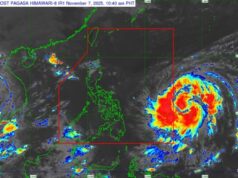
A HOUSE panel approved on Tuesday a bill proposing that after Grade 10, students can either proceed to senior high school or take a techvoc course as an “educational pathway” to pursuing a college degree.
“Basically, what will happen is basic education will be K-to-10. After [Grade] 10, we can have a graduation for basic education [completers]. But if a learner wishes to proceed to a university or a college then there will be an additional two years: Grades 11 and 12, which will be under the DepEd (Department of Education),” House Basic Education Committee Chairman and Pasig Rep. Roman T. Romulo said.
“But if a learner, after completion of Grade 10, wishes to take the techvoc track… we will have an upgraded TESDA (Technical Education and Skills Development Authority) that will take care of the curriculum together with industry partners,” added Mr. Romulo, who pushed for the proposed Education Pathways Act.
Under the current law, Republic Act No. 10533 (Enhanced Basic Education Act of 2013), it takes two more years of basic education — Grades 11 and 12 — before a student can earn a high school diploma.
When the K-to-12 program was institutionalized, the Philippines was the only Asian country and one of three in the world — the others being Angola and Dijbouti — with a 10-year basic education curriculum.
However, Mr. Romulo noted that under the current K-to-12 basic education curriculum, about 30% to 36% of learners are under the Technical-Vocational-Livelihood track.
“We want Filipinos to understand that techvoc globally is highly competitive now and it is a highly skilled profession already unlike how it is being treated right now,” he said.
For students who will enroll in techvoc, TESDA is mandated to create a diverse techvoc program “designed to equip students with practical skills and competencies for specific industries.
In retaining the K-to-12 program as a requisite for admission to a college or university, the bill cites that the DepEd is mandated to “develop and implement a comprehensive curriculum for Grades 11 and 12 that prepares students for admission to colleges and universities.”
The Philippines scored the lowest in reading comprehension and second-lowest in Mathematics and Science in the 2018 Programme for International Student Assessment (PISA). — Beatriz Marie D. Cruz



